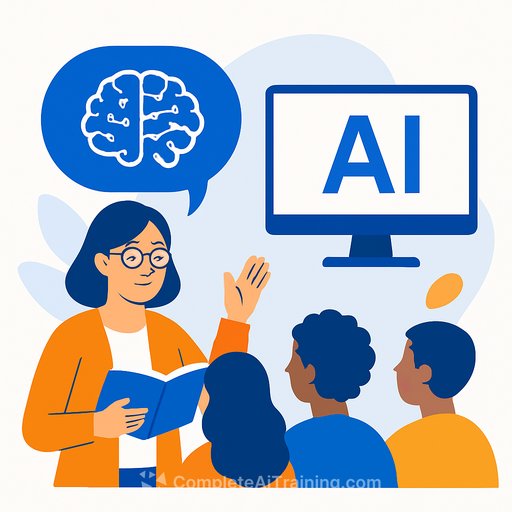UNESCO releases global report on Bahrain's AI readiness: What it means for educators
UNESCO has released its global assessment of the Kingdom of Bahrain's readiness for artificial intelligence. The report, produced using UNESCO's Readiness Assessment Methodology (RAM), recognizes Bahrain's momentum and provides a clear structure for responsible adoption. Bahrain is the second GCC country to receive this assessment, reflecting sustained national focus on AI policy, capability, and ethics.
The announcement followed an official meeting between the Information & eGovernment Authority (iGA) and UNESCO representatives, with participation from higher education and national committees. For educators, this marks a practical opening: policy is aligning, infrastructure is maturing, and there's room to shape how AI supports teaching, learning, and academic research.
What UNESCO assessed
The UNESCO AI Readiness Assessment reviews six pillars that together signal a country's preparedness. These pillars help education leaders see where to act and how to prioritize.
- National governance: vision, coordination, and accountability
- Legislation and regulation: privacy, safety, and responsible use
- Society and culture: inclusion, trust, and public awareness
- Research and education: skills, academic output, and talent pipelines
- Economic factors: investment, incentives, and job readiness
- Technological infrastructure: data, connectivity, and compute capacity
Key highlights for Bahrain
- Strong public-sector momentum: Bahrain ranks 18th globally in the 2024 UN E-Government Development Index, signaling capable digital institutions and service delivery.
- Inclusive talent development: 42% of students in STEM fields are women, and national initiatives continue to build digital skills.
- Governance and ethics in motion: iGA's Innovation and Advanced Technology Directorate is established, the GCC AI Ethics Guiding Manual was adopted in 2023, and the National AI Policy is set for 2025.
- Practical enablers: initiatives such as the Innovation Hub and the AI Talent Programme aim to accelerate capability across sectors, including education.
Why this matters for schools and universities
AI in education is now less about hype and more about policy-backed practice. The report's pillars map directly to day-to-day decisions in curriculum, assessment, research, administration, and student support.
- Policy alignment: Ensure institutional policies reflect national guidance on ethics, safety, privacy, and academic integrity.
- Curriculum and skills: Introduce AI literacy across programs and deepen practical AI skills in STEM and non-STEM fields alike.
- Teacher capacity: Upskill faculty on prompt use, model limits, bias, and responsible deployment in classrooms and labs.
- Research enablement: Focus on AI's social, economic, and environmental impacts, with interdisciplinary projects and open data practices where appropriate.
- Data and infrastructure: Audit systems for data quality, consent, and security; align with national standards before piloting AI tools.
- Equity and inclusion: Expand access, support underrepresented groups, and monitor outcomes to prevent new forms of bias.
Practical next steps for education leaders
- Publish or refresh an institutional AI use policy for students, faculty, and staff, aligned with national ethics and privacy requirements.
- Stand up a cross-functional AI committee (academics, IT, legal, student affairs) to review pilots, procurement, and risk.
- Add AI literacy modules to first-year courses and teacher development programs; include bias, citation, verification, and data care.
- Prioritize two to three high-impact pilots: academic advising support, grading assistance with human oversight, and research data analysis.
- Create research clusters on AI in education, labor markets, health, and environment to support national priorities and funding calls.
- Track outcomes: define clear metrics for student learning, faculty workload, accessibility, and cost savings before scaling.
Voices from the launch
National leaders highlighted the government's focus on ethical, inclusive AI that improves services and strengthens competitiveness. UNESCO's regional office underscored Bahrain's digital governance standing and its progress on inclusivity, noting the significance of women's participation in STEM and continued investment in digital skills.
Where to learn more
- UNESCO's AI Readiness Assessment Methodology (RAM)
- Curated AI courses by job role (faculty, administrators, researchers)
Bottom line
Bahrain's AI readiness report gives educators a timely signal: the policy and infrastructure pieces are coming together. The opportunity now is to set clear guardrails, build staff capability, run focused pilots, and measure what actually improves learning and research.
Your membership also unlocks:






